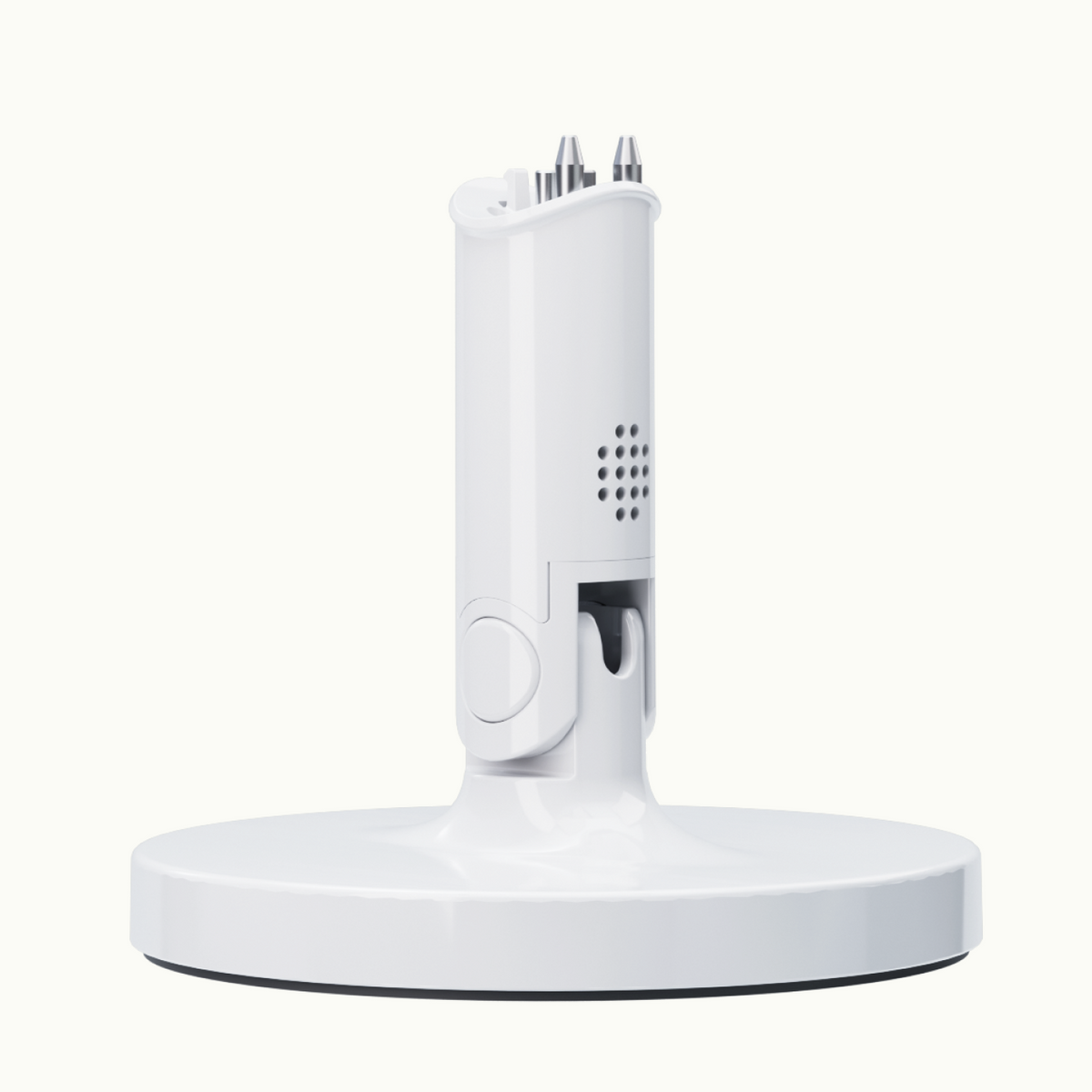Few sounds are more heartwarming than those your baby makes. From their first coo to their first laugh, hearing them connect with the world around them is a magical thing.
And yet, any parent new to raising a little one might wonder about all the sounds that babies make when they sleep. Grunting, groaning, and snorting are all common sleeping baby noises. But it can be confusing to know what’s typical and when you should be concerned.
Read on to learn why your baby makes noises while sleeping and how to recognize what's normal. Trust your instincts—parents usually know when something's off, so try not to overthink it and build confidence in your natural ability to care for your little one.
Why babies make noises when they sleep
The whole notion of “sleeping like a baby” is turned on its head when you witness how noisy your newborn can be at night. Here’s what commonly causes the sounds:
- Digestion. Gas, gurgling, burping, and a rumbling tummy are all positive signs that your baby’s digestion is hard at work even as they rest.
- Sucking/ lip smacking. One of your baby’s most essential jobs is ensuring they get the nutrition they need to develop. Sometimes babies will make sucking movements when they are hungry and sometimes solely to soothe and comfort themselves. As you get more familiar with your baby’s cues you may start to recognize the difference. Babies have a nutritive suck as well as a non nutritive suck. Your baby might suckle or smack their lips even in the midst of deep sleep. Keep in mind, this does not necessarily mean they are hungry.
- Lung development. Your baby’s lungs continue to grow and develop during infancy and childhood. As their body adjusts to sleeping outside the comfort of a womb, you may hear a number of respiratory and other sounds, like brief periods of fast breathing, whistling from their nose, sneezing and even small throat clearing coughs. While some of these sounds may be indicative of something that requires further evaluation, (more on this below), they’re typically evidence of your baby’s adjustment to the world and learning to manage basic respiratory functions independently.
- REM sleep. Newborns may sleep up to 16+ hours per day. A large part of their sleep is spent in REM, the most cognitively active stage of sleep. During REM, babies may grunt, groan, whimper, cry, sigh, or even smile(in case you were wondering why newborns smile in their sleep.”
- Nose breathing. Babies breathe primarily through their noses. So when those super-tiny passageways get plugged up with congestion, it can cause rattling, snoring, sneezing and nasal whistling .
Are my baby’s sleep noises okay?
It’s natural to feel on edge as a new parent but trust that your instincts will guide you. That said, you function best when you’re well-rested, so it’s important to differentiate between your child’s normal sleeping noises and the noises that may require your help to ensure you are not up all night unnecessarily. These tips will guide you:
- Learn your baby’s sleeping noises. If your baby sleeps in your room, you’ll become attuned to their usual (and normal) sleeping noises like groaning or sighing. You can also enlist the help of a baby monitor that allows you to peek in on your baby and track their sleeping patterns and sounds.
- Get used to hunger cries. A baby’s tummy is approximately the size of a walnut when they are born and slowly grows. , As your infant grows the spacing between nighttime feeds with extend Newborns eat every 1.5 to four hours (including during the night). If your child makes noise from their crib right around the time you’re due to feed them again, trust that it’s a sign that they’re hungry. Also, hunger is usually preempted by increased alertness and lip-smacking before they start to cry. So, keep an eye out for these hunger cues and you may be able to intervene with a feed before any wake-the-whole-house wailing starts.
- Pause before reacting. You might be tempted to run to your baby’s side the second they make a noise. But given the range of noises babies make as they sleep, sometimes it’s best to wait for 30 to 60 seconds before reacting. After all, waking your infant because of a normal and benign whimper may trigger its own set of issues. If they do wake up on their own, and you are confident they are not hungry, urge them back into dreamland by giving a gentle massage, re-swaddling babies who are three months old or younger, and using a Sound + Light Machine to help soothe them.
Signs your baby is in distress
It’s vital to trust your instincts and be aware of when it comes to distress in your sleeping child, such as:
- Persistent grunting, or appearing to be labored when breathing is something that should be evaluated by your pediatrician. .
- Rapid breathing, or breathing for an extended period (above 60 baby breaths per minute in infants under 1 year)
Seek out emergency medical assistance if your baby’s skin has a bluish tint, their nostrils are noticeably flaring, or the muscles in their neck and chest visibly contract (retractions), with or without sleeping noises.
But if your little one is simply wriggling and emitting an occasional burp or startled cry when they’re sleeping, remind yourself that a huge amount is going on behind the scenes: They’re hard at work growing.
How Nanit monitors baby’s sleep and noises
Rest assured: You aren’t the first parent to ask, Why do babies make noise when they sleep? From baby grunts to whistling and gurgling, babies are famously loud sleepers, and it takes practice to learn the difference between sounds of normal, developmentally productive sleep, hunger, and noises that are cause for alarm.
Nanit facilitates this learning process. Our collection of baby monitors leverages the latest in audio technology to help you stay connected, even when you’re out and about. Plus, Nanit features like smart alerts and sensor-free breathing motion monitoring, you may find the calm and comfort you need to sleep in peace.
Key takeaways
- Most of the time, babies’ sleep noises are completely normal. Babies make noise in their sleep because they’re digesting, dreaming, or simply growing.
- Learning your baby’s unique sleep noises can give you peace of mind. When you know what noises are common for your baby, you can pause before running to their side and potentially waking them when there’s nothing to worry about. And you’ll also know when there’s cause for concern.
- Use a smart baby monitor to help understand your baby’s noises and sleep patterns. Especially when your child sleeps in a different room, a smart baby monitor is helpful to track and log all their noises, so you can become an expert translator.
Sources:
Healthline. Here’s why you shouldn’t worry if your baby makes noises while sleeping.
https://www.healthline.com/health/baby/baby-sleep-noises
What to Expect. Newborn and baby sleep basics.
https://www.whattoexpect.com/first-year/newborn-sleep.aspx
Better Health Channel. Typical sleep behavior (1)-newborns 0 to 3 months.
https://www.betterhealth.vic.gov.au/health/healthyliving/typical-sleep-behaviour-nb-0-3-months
USDA WIC Breastfeeding Support. How much milk your baby needs.
https://wicbreastfeeding.fns.usda.gov/how-much-milk-your-baby-needs



